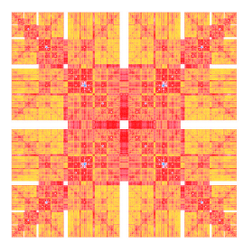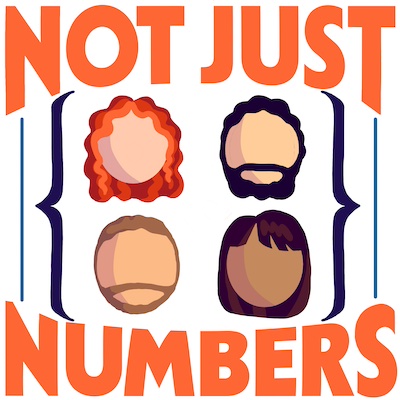A fractal spectrum of tales
- Steven Strogatz ask me anything video
This is a follow up from the previous post. I have stumbled upon a wonderful recent video by Steven Strogatz on Twitter which I believe could be extremely helpful for current and prospective PhD students in STEM, and for their advisors!
I think it is worth every minute of it:
Consider also listening to Strogatz’ The Joy of x podcast, it gives a beautiful, humane and informative snapshot into what research and researchers are like.
1 min read - Mar 25, 2021 - On doing a PhD (in STEM)
I was asked a few times in the recent past if doing a PhD is worth the effort. Since then, I have been thinking of writing what I think on my blog but, as usual, I could never find the time for it. Not long ago, Jacopo Bertolotti shared his thoughts on the same matter in a nice twitter thread.
Since that really resonated with what I had to say, I’ll let him speak also for me and add a few more comments at the end.
5 min read - Dec 4, 2020 - Micro Course in Spectral Sub Riemannian Geometry
Recently, I have had the pleasure and honour to give a “micro” course on spectral sub-Riemannian geometry for the Dutch Differential Topology and Geometry seminar. Given the current global circumstances, the course was given via Zoom and the organizers and participants have been kind enough to have it recorded and published online.
You can access the recordings of the first and second lecture on the YouTube Channel of the DDT&G. The slides are also available (beware, they are 99Mb of handwritten pdf!).
1 min read - Oct 13, 2020 - Lecture notes on Hamiltonian mechanics (update)
I have just released a small update to the Hamiltonian Mechanics lecture notes here. This contains some edits to improve the english and fix a few typos. The lecture notes have also been approved to appear in the AMS Open Math Notes, which seems to be a very nice initiative, full of very interesting and high quality content.
1 min read - Oct 11, 2020 - Lecture notes on Hamiltonian mechanics
In the last academic term, I had the great pleasure to teach Hamiltonian Mechanics, an optional master course for mathematics and physics students. Even though the course was based on Arnold’s beautiful book, my plan for the course was to give a panoramic on the modern theory of integrable systems and perturbation theory. Of course, my grand plan, was way to optimistic. And between the time available, a bad flu and then the pandemic landing, we were able to do much less than what I hoped for.
2 min read - Apr 20, 2020 - First steps with Category Theory and OCaml
# Introduction
Category theory is an abstrac mathematical framework that had a huge influence on pure functional programming design patterns. The abstractions and laws that come bundled with the mathematical concepts allow us to write safer and composable interfaces, very prone to equational reasoning, at the price of a steeper learning curve. If you attempt to write some relatively modern Haskell code, you will inevitably have to deal with Monoids, Functions, Monads, Lenses and whatnot typeclassopedia. Also, if you are using modern OCaml libraries, you will find fingerprints of these constructs all over the place, even though there they are less prominent.
34 min read - Jun 4, 2017 - On teaching mathematics - By V. I. Arnold
This is an extended text of the address at the discussion on teaching of mathematics in Palais de Découverte in Paris on 7 March 1997.
Mathematics is a part of physics. Physics is an experimental science, a part of natural science. Mathematics is the part of physics where experiments are cheap.
The Jacobi identity (which forces the heights of a triangle to cross at one point) is an experimental fact in the same way as that the Earth is round (that is, homeomorphic to a ball). But it can be discovered with less expense.
19 min read - Feb 6, 2015 - Left pipe in Haskell
If you read this blog, you know that I am very biased by having worked with unix shells for almost two decades and that I am addicted to the use of pipes (see e.g. Piping with Swift). I really find much more natural to see data moving from left to right.
Yesterday I was thinking that in Haskell everything is an expression and that you can easily define infix operators. Thus it must be possible to implement a shell-like pipe.
2 min read - Nov 21, 2014 - What Problems to Solve - By Richard Feynman
A former student, who was also once a student of Tomonaga’s, wrote to extend his congratulations. Feynman responded, asking Mr. Mano what he was now doing. The response: “studying the Coherence theory with some applications to the propagation of electromagnetic waves through turbulent atmosphere… a humble and down-to-earth type of problem.”
Dear Koichi,
I was very happy to hear from you, and that you have such a position in the Research Laboratories. Unfortunately your letter made me unhappy for you seem to be truly sad. It seems that the influence of your teacher has been to give you a false idea of what are worthwhile problems. The worthwhile problems are the ones you can really solve or help solve, the ones you can really contribute something to. A problem is grand in science if it lies before us unsolved and we see some way for us to make some headway into it. I would advise you to take even simpler, or as you say, humbler, problems until you find some you can really solve easily, no matter how trivial. You will get the pleasure of success, and of helping your fellow man, even if it is only to answer a question in the mind of a colleague less able than you. You must not take away from yourself these pleasures because you have some erroneous idea of what is worthwhile.
4 min read - Nov 21, 2014 - Socks proxy with ssh
When you work in the University, it is very likely that during a trip or the weekend you urge to connect via the University to have access to Journals and other academic resources.
Often enough this requires long and complicated procedures involving the setup of rarely updated proprietary VPN softwares that sometimes like to install their obscure helpers to monitor the traffic and prevent you to open malicious websites. Helpers that would keep working in background sending to unspecified servers all your business even when the VPN is off…
2 min read - Oct 31, 2014


